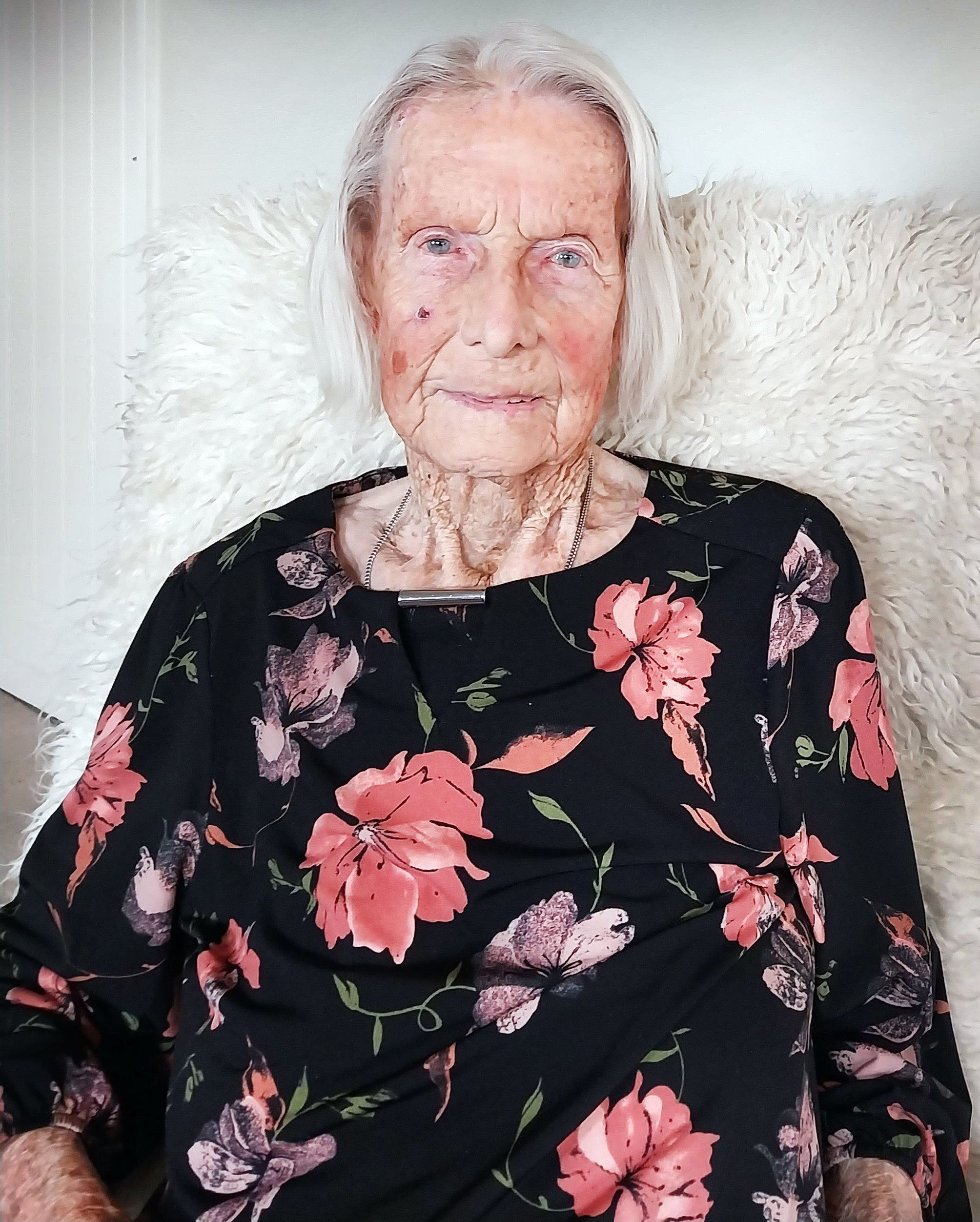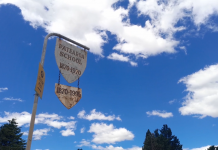Born July 12, 1922, Margaret Betty McCormack (known as Betty) reflects on 10 decades of life. ahead of her 100th birthday. Aspen Bruce reports.
Daughter of Jack and Isabella Porteous, sister of Jack and Doris, Betty McCormack began life in Palmerston North.
“I do not remember a lot about my early years in Palmerston North,” she said.
Her father worked for New Zealand Railways as a signal adjuster and the family lived in a railway house. Dunedin became home for the family when her father was transferred, living in Laing St.
“We had a large garden with a range of veges, fruit trees, blackcurrants and gooseberries, with a large hen run.”
Betty recalls it being around the start of the Great Depression, when she attended Caversham School.
“Dad was lucky to be employed. Mum cooked extra meals for hungry children and I used to bring kids who had no shoes and were hungry, home from school. We all had extra mouths tofeed and everyone worked together to help each other,” she said.
From Caversham School, she moved on to King Edward Technical College.
In an attempt to see the Leander arrive in port, a large group from her class coordinated “writing letters from their parents”.
Unfortunately the principal and teachers caught on and carted them back to school.
“The consequences best left out! However, I settled down after that, worked hard and passed all my exams and was a prefect,” she said.
Betty spent three years at high school before starting work. The first job she applied for, at Mittson & Bell Accountants, ended after she accidentally put the carbon paper in upside down when typing.
Lesson learnt, Ms McCormack shifted to G.S. Kirby Accountant and Solomon Gascoigne Sinclair and McKewen Solicitors. During these years, she took night classes at Browns Commercial College.
In World War 2, Betty’s brother Jack enlisted and was sent off to Egypt for three and a-half years.
“It broke Mum’s heart. It was so hard on other mothers, wives and friends. Jack never wanted to see sand or beaches for years afterwards.”
The time of war meant rationing, queues and shortages, although there were plenty of jobs for women.
“The war years took a toll on everyone. The boys who went away to war came home as men, having had to grow up rapidly. They didn’t want to talk about their time in the forces.”
While working in the Smith and Smith office after the war, she met Eric McCormack. Through the New Zealand Air Force, he got a job glass bevelling, later becoming manager of the department. He was later discharged Grade Four from the air force.
The couple married in the Caversham Presbyterian Church on September 24, 1947.
With the help of a rehab loan, they built a brick home in Barr St, Mornington, in Dunedin. Eric’s health began to deteriorate and based on the doctor’s advice, they made the shift to Luggate.
“Doctors recommended Central Otago fresh air and climate. Hence, with not much alternative, we moved to the Luggate Hotel,” Ms McCormack said.
The hotel set the scene for many significant memories, including a police raid, transitioning from “city slickers to country bumpkins”, and the birth of their son Peter on June 12, 1957.
He was the second baby born at the hotel. The first was Kath Reid, wife of Ralph Reid, of Upper Clutha Transport. Between six to eight weeks of age, Peter went missing from his pram during winter. It led to a full community search party. “We eventually found him in the cabbage patch at the back of the shop. A young toddler thought he was a doll, took him from the pram and then discarded him.”
At that point, Mr and Ms McCormack decided hotel life was “no good for a youngster”.
They transitioned into Luggate Motels, operating in both Luggate and Wanaka.
“It was a really happy time in Luggate and one which I will always remember. Everyone knew each other and worked together.”
In July 1967, the McCormacks purchased the La Boheme Restaurant in Ardmore St, Wanaka, the same week decimal currency was introduced.
Eric looked after the motels, while Betty ran the restaurant. At that time, only two eateries were in Wanaka — The Kingsway and La Boheme.
In Wanaka, they moved to Upton St, Totara Tce, in 1972, and finally Tenby St, in 1984.
Optimistic about retiring, the McCormacks sold the restaurant. However, the pull to work resurfaced.
They worked at the Tourist Hotel Corporation, with Eric as bar manager and Betty carrying out general bar duties.
It still allowed them the flexibility to enjoy golf and bowls together.
Once finally retiring, they remained active in sports including bowls and fishing.
They enjoyed years together before Eric died on May 6, 1994, after four months of various hospital visits across the region.
Betty continued to live in Tenby St before moving into a local retirement home.
Upon reflection, Betty McCormack imparted the wisdom behind living a rich life.
“You’ve got to learn patience, and remember we are all different. Everybody’s got different ideas on life and you’ve got to remember to go with the flow. We’re all entitled to our own thoughts and decisions.
“We’re all learning every day. Even at 99, I’m still learning and I think times change and you’ve got to go and live with the times.”
On July 12, Margaret Betty McCormack will celebrate 100 years of life with close friends and family at her Aspiring Lifestyle Retirement Village.





